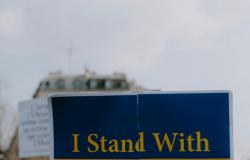
This paper explores why a group of Global South middle powers has adopted stances on the Ukrainian war that diverged from the positions of the United States under President Joe Biden, the European Union and the broader NATO/Western alliance. I claim that these disparities are partially explained by the affiliation these states have with the notion of non-alignment that has been re-signified in the context of the conflict in Ukraine. I argue that ‘non-alignment’ has, over the years, provided postcolonial states with a sense of common purpose and ontological security. This was done through a set of institutionalised practices and narratives anchored on principles such as autonomy, anti-Western colonialism and equality that provided them with a sense of identity in the unstable context of the Cold War conflict and beyond. The claim, therefore, is that these states' positions are not necessarily related to developments in the war itself, and the undeniable fact of Russia's aggression. Instead, they are rooted in a sense of ontological (in)security and historical resentment towards the exclusions and hierarchies of the Western-led international order. I engage with the cases of India, Brazil and South Africa as representative democratic middle powers and leaders in the Global South.
Policy implications
- Foreign ministries, policy research institutions and international organisations should engage with Global South Middle Powers (GSMPs) with a clear understanding of their historical pursuit of autonomy and equality, framed in the article as ontological security. GSMPs' non-alignment on conflicts like Ukraine stems from deep-rooted resistance to major power influence, not merely opportunism or neutrality. Policies must explicitly recognise this historical context.
- Western governments should acknowledge the role of identity and ontological security in GSMPs' foreign policy decisions. The article highlights how GSMPs seek to maintain a stable sense of self in the international system, often in relation to a perceived ‘Western other’. They resist being positioned within Western-imposed hierarchies. Diplomatic discourse and practice must shift to recognise GSMPs as active global actors rather than passive participants in a Western-led order.
- Western governments should support reforms to multilateral institutions, such as the UN Security Council, to improve GSMP representation. This includes expanding their voting rights, leadership roles and decision-making influence. Dismissing platforms like BRICS as incoherent overlooks the significance of collective identity in global governance and disregards GSMPs' longstanding concerns about unequal treatment, which shape their views on the Ukraine conflict.
- Think tanks and diplomatic training programmes should integrate ontological security perspectives and GSMP worldviews into research and policymaking. Policymakers must go beyond strategic and economic analyses to understand the historical, cultural and identity-based factors shaping GSMP decisions, fostering more effective and empathetic engagement.
Photo by Mathias Reding